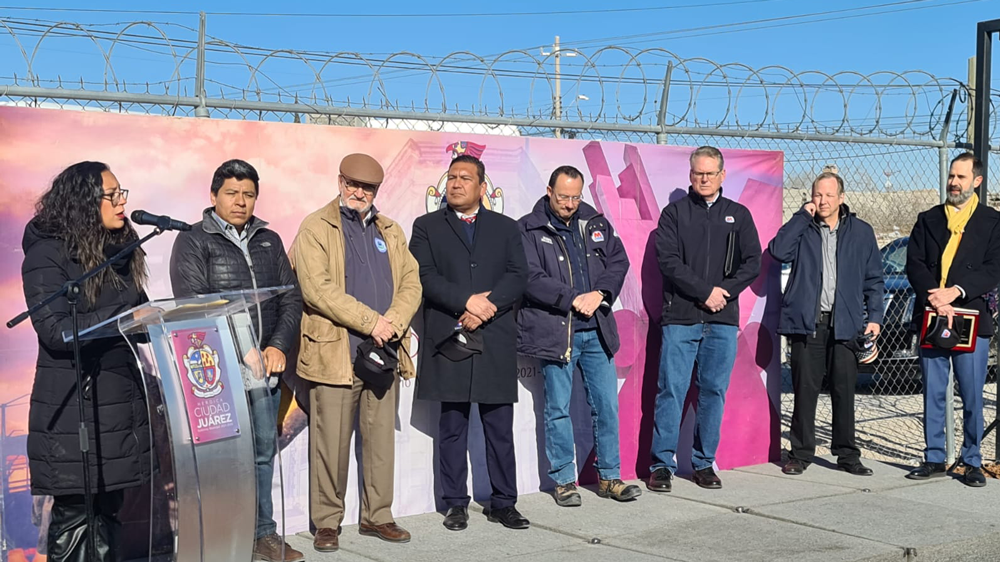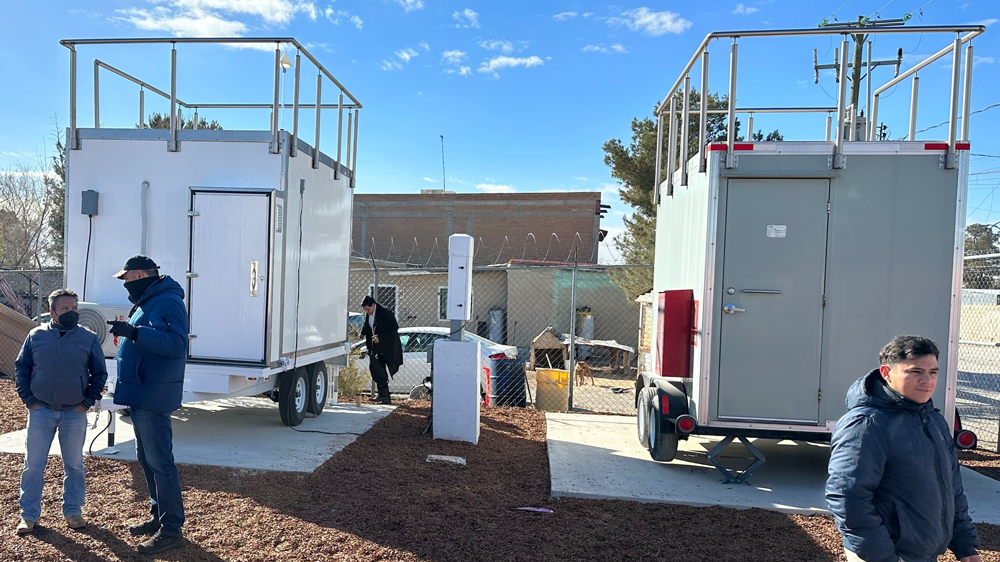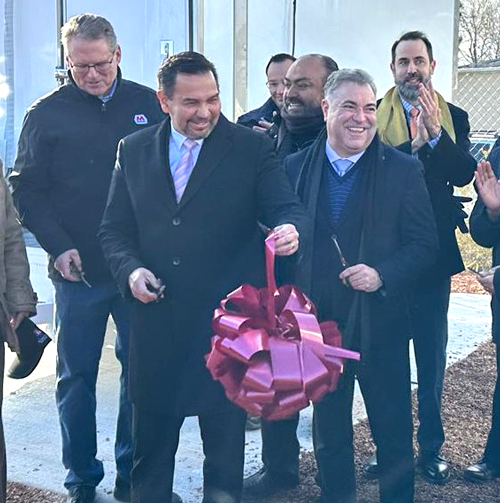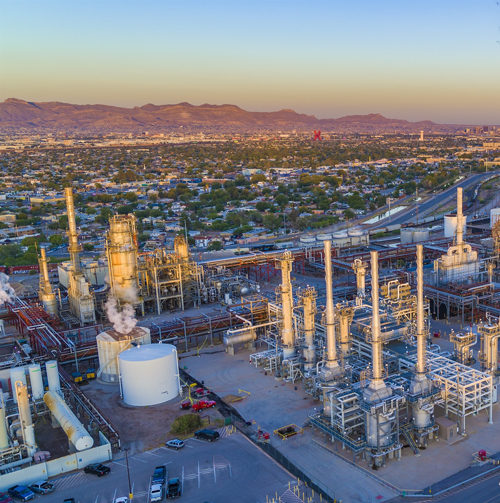Cross-Border Cooperation Produces Air Quality Milestone
- International cooperation has expanded efforts to promote air quality and respiratory health awareness along the U.S. border with Mexico.
- A new air monitoring station is the first product of an unprecedented bi-national fund for air quality improvement projects in a region that includes parts of Texas, New Mexico and Mexico.
- Marathon Petroleum funded the monitoring station with the first private-sector grant to the bi-national fund.
Representatives of governmental agencies in the U.S. and Mexico are applauding a milestone in a groundbreaking initiative to benefit air quality on both sides of the border. They recently celebrated the installation of a new air monitoring station that will strengthen data collection to support respiratory health awareness and air quality projects in the Paso del Norte Air Basin, a region of almost 3 million residents that includes El Paso, Texas; Juárez, El Paso’s sister city across the border; and parts of Doña Ana County, New Mexico.
Strength in numbers
The new monitoring station in Juárez is the first product of the Binational Air Quality Monitoring Fund, which was established by the Joint Advisory Committee for the Improvement of Air Quality in the Paso del Norte Air Basin. The fund is an unprecedented financial mechanism that combines monetary contributions from private-sector and public-sector sources in the U.S. and Mexico, including the U.S. Environmental Protection Agency and the Texas Commission on Environmental Quality (TCEQ). Marathon Petroleum, which operates a refinery in El Paso, made the first private-sector contribution to the fund. This $100,000 grant allowed for installing the new station.
“This station will help provide better air quality data to enhance health risk communications and the effectiveness of air quality improvement projects for the region,” said TCEQ Border Affairs Manager Eddie Moderow.
Meeting future needs
The new station adds to three existing, strategically located stations in Juárez, bolstering monitoring capabilities to better keep pace with the basin’s urban and industrial growth. There are now 22 stations in the monitoring system across the basin. The new station includes an ozone analyzer, equipment for measuring particulate matter and meteorological sensors.
“With hundreds of employees and contractors who live and work in El Paso, we are deeply connected to this area, so we have a vital interest in supporting this effort to advance public health and quality of life,” said Marathon ESG and Stakeholder Engagement Manager V.J. Smith.




